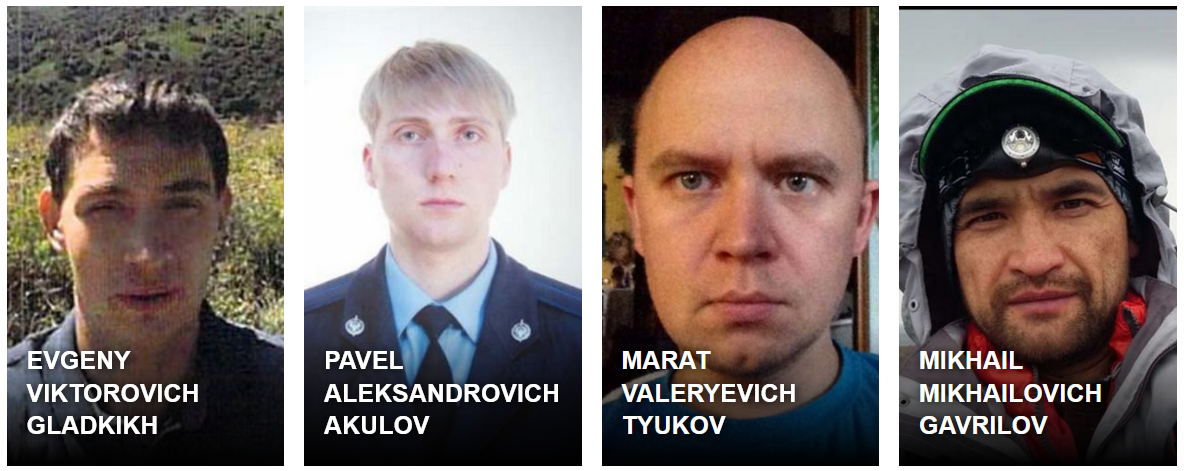
The U.S. has indicted 4 Russian authorities workers for their involvement in hacking strategies concentrating on hundreds of firms and corporations from the world-wide electricity sector in between 2012 and 2018.
“In full, these hacking campaigns specific countless numbers of desktops, at hundreds of providers and businesses, in roughly 135 countries,” the Department of Justice reported.
The Division of Justice unsealed two indictments on Thursday, one from June 2021 and a single from August 2021, charging one staff of the Russian Federation Central Scientific Research Institute of Chemistry and Mechanics (TsNIIKhM) and 3 officers of Russia’s Federal Protection Support (FSB).
Evgeny Viktorovich Gladkikh, a laptop programmer at TsNIIKhM, and co-conspirators were powering attacks that triggered two emergency shutdowns at a Middle East-based mostly refinery facility between Could and September 2017.
They did that by hacking the refinery’s methods and putting in malware recognized as Triton or Trisis on Schneider Electrical Triconex Tricon PLCs utilized by protection systems.
The malware infects the Triconex Tricon PLCs by modifying in-memory firmware, which authorized the attackers to insert further programming and control the compromised techniques remotely.
Subsequently, the team also tried using to hack into the techniques of a U.S. refinery involving February and July 2018.
Pavel Aleksandrovich Akulov, Mikhail Mikhailovich Gavrilov, and Marat Valeryevich Tyukov, the kinds charged in August 2021, ended up officers in Navy Unit 71330 or ‘Center 16’ of the FSB.
They were being also portion of a hacking team tracked under several names, including Dragonfly, Berzerk Bear, Energetic Bear, and Crouching Yeti.

The FSB “Dragonfly” hacking strategies
Concerning 2012 and 2017, the three FSB hackers and their staff were powering many breaches and offer chain assaults targeting ICS or Supervisory Manage and Knowledge Acquisition (SCADA) methods employed in the worldwide vitality sector, which include oil and fuel companies, nuclear power vegetation, as effectively as utility and energy transmission organizations.
In the initial campaign, which took location concerning 2012 and 2014 and is identified as Dragonfly or Havex, they infiltrated the networks of many ICS/SCADA procedure companies and program companies and infected authentic computer software updates with the Havex distant entry Trojan (RAT).
With each other with spearphishing and “watering hole” attacks, this offer chain assault enabled them to infect much more than 17,000 exceptional gadgets in the United States and worldwide with malware.
Concerning 2014 and 2017, as section of the Dragonfly 2. marketing campaign, they switched to spearphishing attacks and specific in excess of 3,300 customers at far more than 500 U.S. and intercontinental providers and entities, like U.S. governing administration companies these types of as the Nuclear Regulatory Fee.
“Russian state-sponsored hackers pose a severe and persistent risk to important infrastructure both in the United States and all-around the entire world,” mentioned Deputy Attorney Typical Lisa O. Monaco.
“While the legal prices unsealed nowadays mirror previous action, they make crystal clear the urgent ongoing require for American businesses to harden their defenses and continue to be vigilant.”
CISA, the FBI, and the U.S. Section of Power also released a joint cybersecurity advisory detailing the condition-sponsored Russians’ hacking strategies targeting the U.S. and global Strength Sector, like oil refineries, nuclear services, and electrical power businesses.
The U.S. Division of Point out is supplying a reward of up to $10 million for any info primary to the identification or locale of point out-sponsored Russian hackers focusing on U.S. significant infrastructure.






